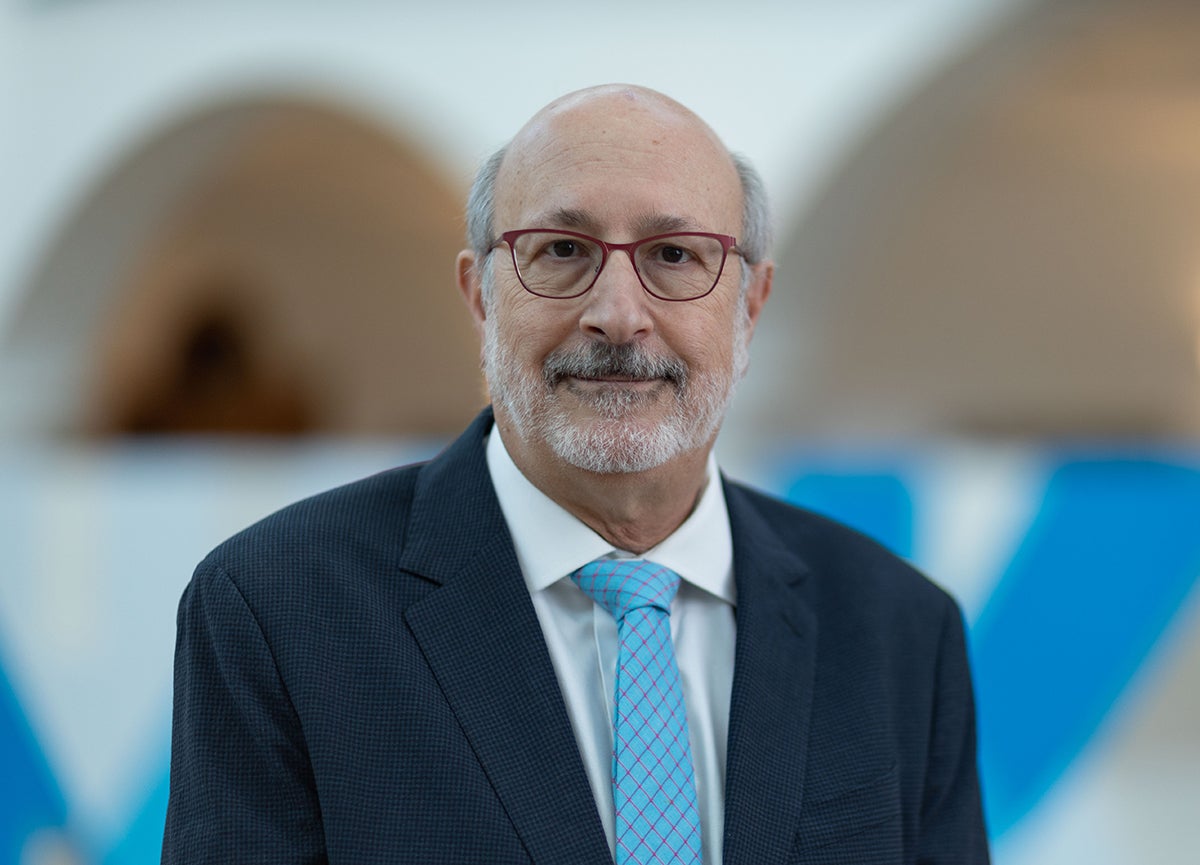
Q. What do you think Hamad Bin Khalifa University’s strengths are, and how do we shape our students to become global citizens?
A. Many universities don’t have the research focus that we have; those students get a curriculum and programs that are ‘textbook learning’. But at research universities such as HBKU, the faculty who are teaching are the same faculty who are involved in cutting-edge research, and so the information students are receiving is the most up to date. Our programs are not traditional; you’re going to find degrees in sustainability, degrees that are interdisciplinary and focused on world problems. That means students are being trained to address those problems, and so when they leave HBKU and enter the workplace they have this focus on solutions – solutions to important problems that are impacting their community, their society, and who they are working for. Our students will be problem-solvers when they leave HBKU. There is also a culture of innovation and entrepreneurship at HBKU. By innovation, I mean providing novel solutions to important problems, and by entrepreneurship, I mean offering practical solutions that could be commercialized or lead to industries and government ministries directly addressing problems that are faced by people, society, and the world. That spirit of innovation and creativity is another unique aspect of HBKU.
Q. HBKU strives to provide multidisciplinary offerings that touch upon both academia and research. Does this give our graduates a competitive edge in the real world?
A. The answer is yes – it does! HBKU does two things that are different from many other universities. It really brings that research focus into the classroom, and we have an expectation that all our students are going to be engaged in some way or another with research. It may not be running their own research project or publishing their own papers, but they are going to be involved in research somehow, or at the very least involved in understanding how research answers questions and addresses problems. Our curricular programs mean our students will leave HBKU as innovators and as problem-solvers. But to do that and understand what the problems are and how to address them, they have to understand what it is we know, and how you take that information and do something with it. That is something unique at HBKU – that ability to synthesize the known information and use it to solve a problem. We hope the way we have designed our programs and our classroom experiences allows all our students to leave with that skill set. That is different than what they get in many other universities.
Q. We have renowned faculty members at HBKU who deliver our programs and support students throughout their educational journey. How important is this for a student’s development?
A. The hallmarks of a great university are a great faculty. And the better the faculty is, the more creative they are and the more innovative they are, the better the educational experience for students. There’s a myth that teaching faculty teach well, and research faculty research well; I strongly disagree with it. Research faculty are fantastic teachers because they can teach in a way that uses all the latest discoveries and can talk about how they were discovered and how we got there and what are the applications of it. I’d rather learn material from somebody who discovered it than from someone who only read about it. Having research-active faculty is critical to having the top tier level of education. There may be some students that don’t necessarily benefit from that, but they are not the students at HBKU. Our students are the top students; we think they are the elite students in the region, and we think our faculty are the elite faculty in the region. And that’s why the education they get out of HBKU is unique because we have the best students learning from the best faculty, all the while trying to address important problems.
Q. What role do the alumni play in helping HBKU achieve its goals?
A. Alumni can be financially supportive giving scholarships and so on, but beyond that – and even more important – alumni can bring their life, business, and work experiences back to HBKU. They can talk to students about what is it like to have the type of career they had; what is it like to be involved in their sort of business; what students have to look forward to; how they can build the trajectory of their career to be successful. Alumni can also provide opportunities. I hope the graduates of HBKU recognize how unique this place is, and I hope they believe in enhancing that uniqueness and in giving back, and opening opportunities for our existing students. Opportunities like identifying internships that our students can take advantage of. Or when they know their workplace is looking for new individuals and that they know graduates from HBKU are as good as those from coming from any other school, if not better. Our alumni have an important role in contributing to the success of the students – maybe not teaching in class, but in helping students grapple with the direction they want to go in their chosen discipline.



